Featured Faculty & Graduate Students
Faculty Research Highlights
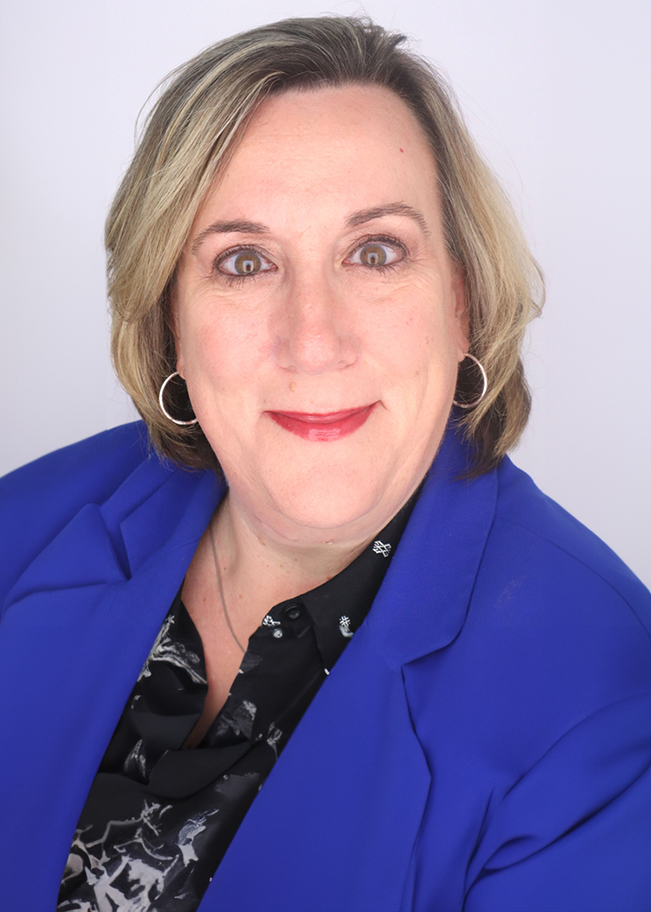
Dr Krista Mitchell | Lecturer, Elementary Education
Krista Mitchell is a lecturer and head supervisor for Student Teaching in Elementary Education in the Department of Curriculum and Instruction. She joined the College of Education in August 2023.
She is currently working on training manuals for University Supervisors, Placements for University Supervisors, for the spring of 2024, and course revisions for 2024-25 when the College will offer a full year of student teaching.
“I am excited to bring my classroom experience to the student teaching courses and have already enjoyed working with our students as they start their last year of college and become the new generation of educators. I am proud to be a first generation college graduate,” Krista says.
She spent the past 25 years as a classroom teacher and media specialist. “I taught second, fourth, and fifth grades, and served as a media specialist in both elementary and middle schools,” she says. “I have held many leadership positions, most recently as Professional Learning Community leader for my exploratory team, a member of my school’s leadership and Positive Behavioral Intervention and Supports teams, as well as my school district’s union president.” When she has time, Krista loves reading for pleasure, attending concerts, traveling, and sharing laughs with her husband and their baby girl.
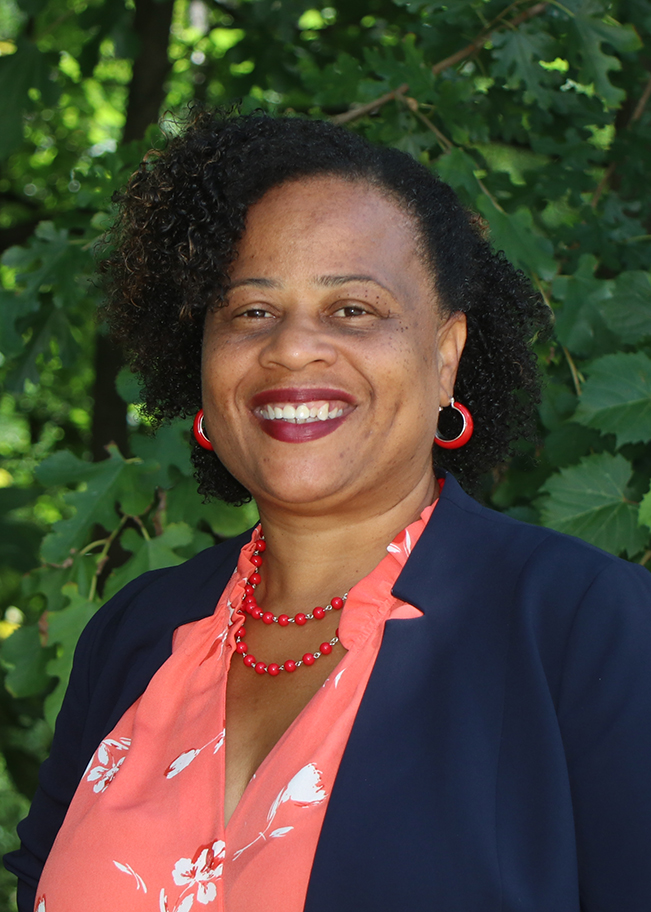
Dr Lanette Jimerson | Visiting Assistant Professor, English Department
“My research focuses on teacher development, writing assessment, and technology” – Dr. Lanette Jimerson
Lanette Jimerson is a visiting professor in English Education within the College of Education. Prior to coming to Purdue University, Jimerson completed an MA and PhD in Language, Literacy, Society, and Culture at the University of California, Berkeley.
Jimerson has served as the director of the Secondary English Credential and Masters Pathway at UC Berkeley and also as the program manager at the Stanford Center for Assessment, Learning and Equity at Stanford University. Her research encompasses 14 years of teaching secondary English in the San Francisco Bay area.
Jimerson has numerous research publications which explore the intersection of writing instruction, technology, and human rights. One of her publications, “Localizing Human Rights Education Through Technology” was published by Springer Publications.
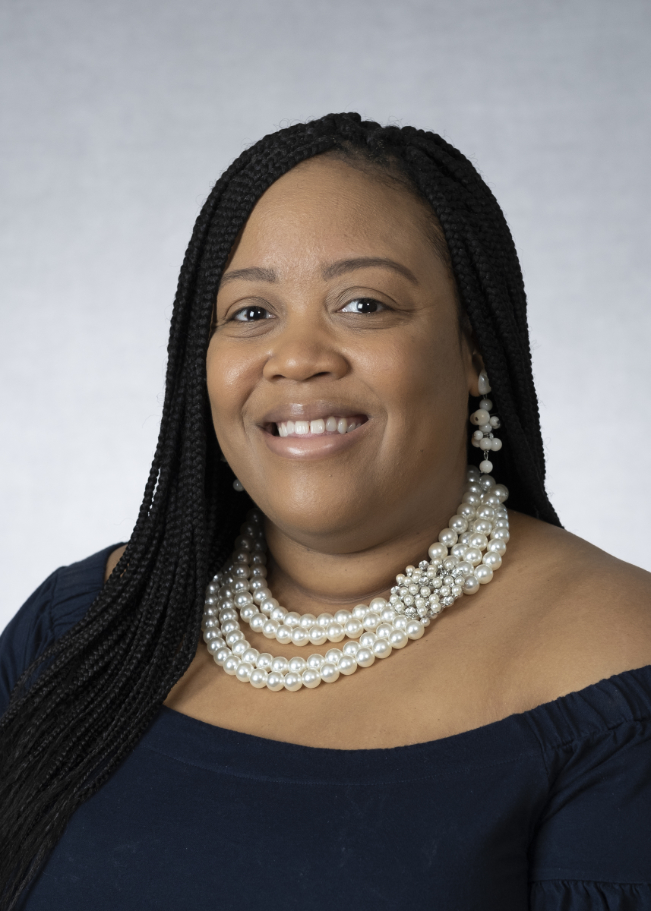
Breanya Hogue | Assistant Professor in Literacy and Language Education
Dr. Breanya Hogue is an assistant professor of Literacy and Language in the College’s Department of Curriculum and Instruction and joined us in August 2022 while finishing her PhD in Literacy, Culture, & Language Education at Indiana University-Bloomington.
“My research agenda includes implementing and studying culturally responsive and proactive pedagogies, practices, and strategies with pre-service teachers that can shape their teacher dispositions and impact students, families, and communities,” Hogue says. “My overall research interests include pre-service teacher urban education preparation, diverse children’s literature, and supporting the development of quality literacy programs and initiatives.”
She is currently working on starting a Children’s Defense Fund (CDF) Freedom Schools program site in the summer of 2023 at Purdue. “This program will provide an enriching summer literacy opportunity at no cost to children and families in our West Lafayette community that otherwise may not be able to afford it,” she said. “This site will also provide some of our preservice teachers with an opportunity to work within this national intergenerational model, learn about the CDF integrated curriculum, and gain culturally relevant teaching practices to add to their teaching toolboxes.”
She is also assisting with interactive read-alouds with the Literacy & Language Development Clinics project with Dr. Christy Wessel-Powell.
Two recent publications she’s excited about:
Appleget. C., Shimek, C., Myers, J., & Hogue, B. (2022). Self-Study communities of practice: A traveler’s guide for the journey. In B. Butler & S. Bullock (Eds.), Learning through Collaboration in Self-Study: Critical Friendship, Communities of Practice, and Collaborative Self-Study. Springer Publishing.
Shimek, C., Appleget, C. Meyers, J., Hogue, B. (2022) Wobbling our Way to Culturally Proactive Pedagogies: Achieving Flow in U.S. Teacher Education. Journal of Education for Teaching.
“When I’m not conducting research, I enjoy traveling and exploring new places. and trying out new restaurants,” Hogue said.
Read more about the Purdue CDF Freedom School Program
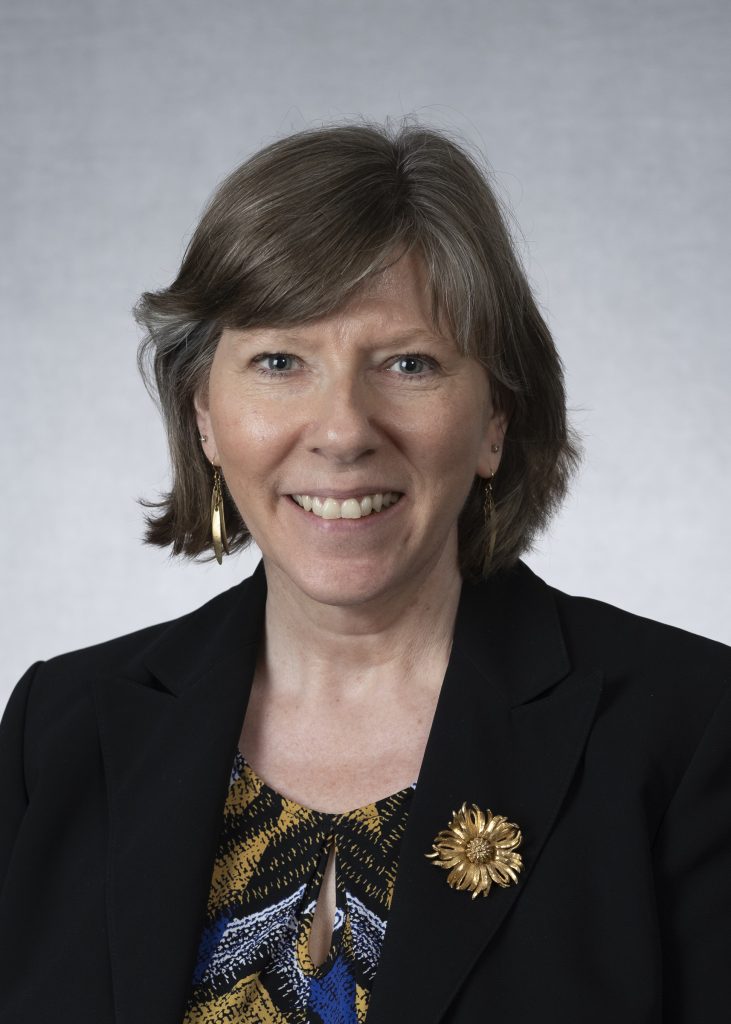
Dr. Janine Duncan | Clinical Associate Professor in Family and Consumer Sciences Education
Dr. Janine Duncan is a Clinical Associate Professor in Family and Consumer Sciences Education within the Department of Curriculum and Instruction. Prior to her position at Purdue University, Duncan earned a bachelor’s in Home Economics Education from the University of Illinois Urbana-Champaign, followed by an MSEd in Education Administration and a PhD in Education Policy Studies from the University of Missouri-St. Louis. She has served as a teacher educator for 17 years, coming to Purdue University from Kansas State University.
Duncan’s research interests include family and consumer sciences, professional literacy development, critical science framework, and the recruitment and retention of family and consumer sciences. Aside from her research, some of her other current projects include co-developing the American Association of Family & Consumer Sciences Virtual Critical Science Academy, and serving as the International Federation for Home Economics Vice President for the Americas.
One of Duncan’s recent publications is titled “Truth or consequences: Advancing equity in family & consumer sciences in the United States”, published in the International Journal for Home Economics.
Outside of her studies and professional work, Duncan enjoys gardening, cooking, and spending time with her family.
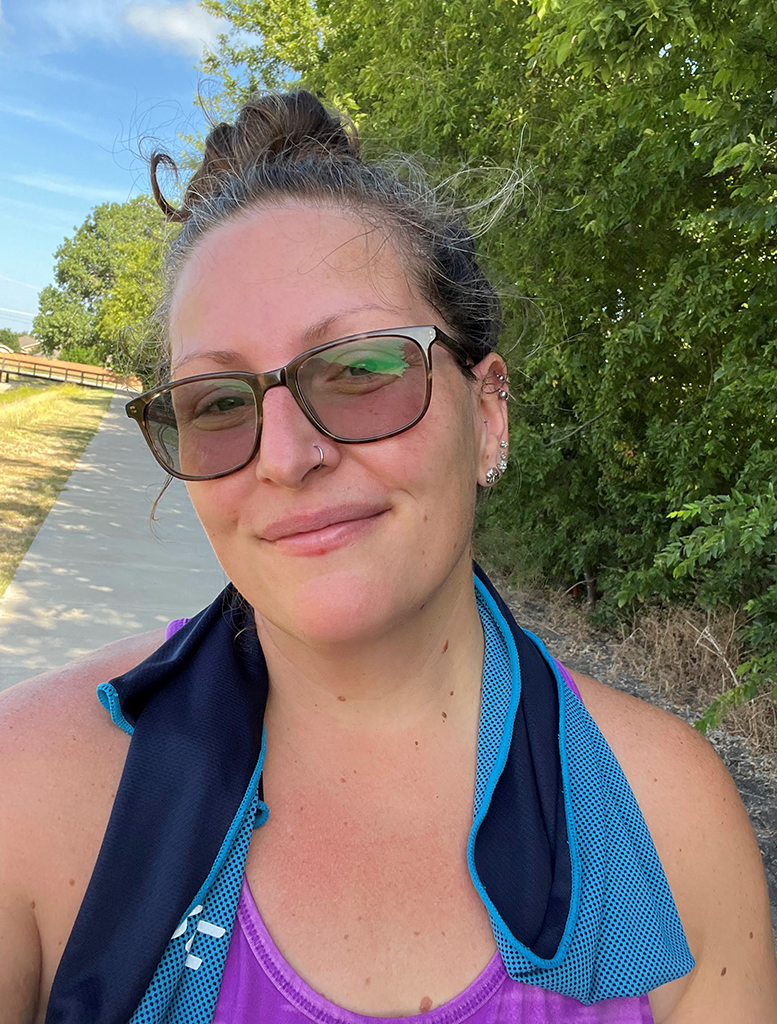
Dr. Chea Parton | Visiting Assistant Professor of Curriculum and Instruction
“It’s hard to be equitable and understanding if you don’t know about yourself first. If you don’t understand yourself as an individual, you won’t understand where you fit inside a community, and you won’t be able to know how you can use your talents and gifts to benefit the rest of that community.” – Dr. Chea Parton.
Dr. Chea Parton is a Visiting Assistant Professor of Curriculum and Instruction in the Transition to Teaching Program in the College of Education. She earned a BA in English at Purdue before beginning her teaching experience at Southern Wells High School in Poneto, Indiana, where she also coached middle school volleyball and basketball. She returned to Purdue to earn a MSED in English Education, then received a Dean’s Fellowship to pursue a PhD in Language & Literacy from The University of Texas at Austin.
Parton became interested in rural education due to many experiences in her own life – including being a rural student from Gaston, Indiana, a rural undergraduate and graduate student at Purdue University, a rural teacher, and then a rural doctoral student at the University of Texas at Austin. Her dissertation Country-fied city or city-fied country?: The Impact of Place on Rural Out-Migrated Literacy Teachers’ Identities and Practices details the experiences of out-migrated teachers who grew up in rural areas but taught at non-rural schools, and how they learned to blend their rural and non-rural language and cultural experiences into their teaching practices.
Parton’s research interests focus on the inclusion of rural representation in young adult literature and how rural English teachers can implement these stories into classroom curricula.
As part of her work in rural education, Parton writes a blog, (Non)Rural Voices, on her website, Literacy in Place, an online repository of rural literature resources to serve teachers. She also produces a podcast titled Reading Rural YAL (Young Adult Literature), which she describes as an opportunity to elevate voices of rural communities and to give students from these communities the opportunity to hear from people who truly represent it. She was recently featured in a Daily Yonder article, “The Power of Place.”
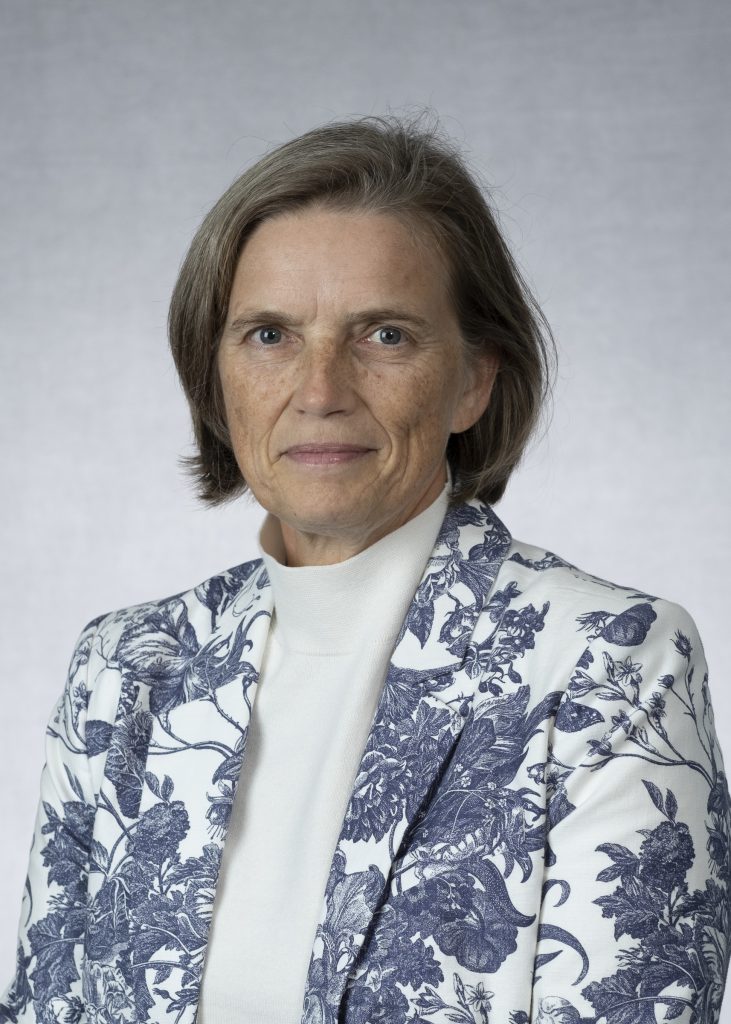
Signe E. Kastberg | Professor in Mathematics Education and Mary Endres Chair in Elementary Education
“I want my impact in mathematics teacher education to be lived in the words I have written about teaching and the experiences of my students and my students’ students,” Kastberg said.
Kastberg is a professor of Mathematics Education and the Mary Endres Chair in Elementary Education. She began her journey to becoming an instructor by earning a BA in Mathematics from Keene State College, followed by an MA in Mathematics and PhD in Mathematics from The University of Georgia.
Kastberg chose to go into education because she has always loved learning and sharing in the excitement of other people’s learning experiences. During her experiences as an educator, she has earned an Excellence in Mathematics Teacher Education Teacher Award from The Association of Mathematics Teacher Educators (AMTE) and the Charles P. Murphy Undergraduate Teaching Award from Purdue University. Her research interests include relational practice in mathematics teacher education, including exploring and illustrating listening, trust, care, and empathy, and the ways in which these sustain and motivate student-teacher collaborations.
She received a conference grant from the National Science Foundation that resulted in edited book focused on mathematics teacher educator work, titled Building support for scholarly practices in mathematics methods.
She describes her most rewarding experiences at Purdue as collaborations with colleagues that inform her learning.
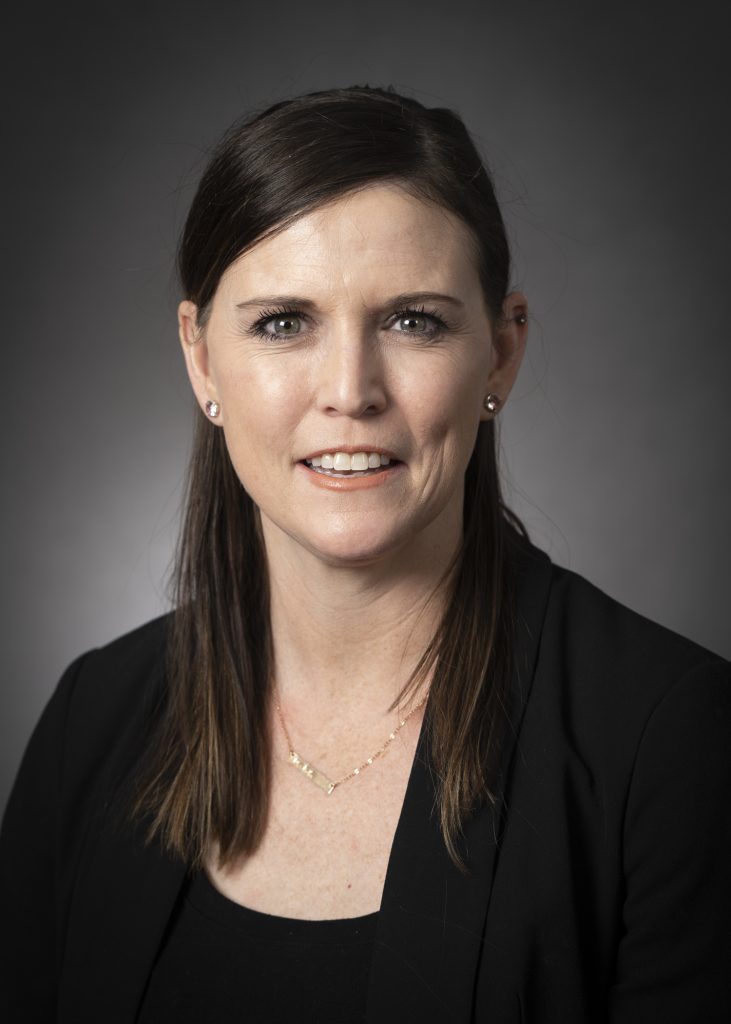
Adrie Koehler | Associate Professor in Learning Design & Technology
Adrie Koehler enjoys research that is directly correlated to teaching and learning experiences. The bulk of her research interest relates to implementing emerging technologies such as social media to support instructional strategies, along with crafting new transitional techniques for pre-service teachers as they are just beginning their teaching careers and facilitating problem-centered learning.
She teaches a myriad of Master’s and PhD courses, including Foundations of Learning Design and Technology (EDCI 513), Instructional Design Project Management (EDCI 633), Advanced Practices in Learning Systems Design (EDCI 672), Issues And Methods In Learning Systems Design Research (EDCI 673), and Advanced Instructional Design Theory (EDCI 674).
During her career, Koehler has received multiple grants for her work, including two large, prestigious grants: 1) a $600K National Science Foundation grant titled “Expanding accessibility of learning through blended synchronous instruction of F2F and remote students” with Nathan Mentzer (PI), a faculty member with a joint appointment in the Purdue Polytechnic Institute and College of Education; and 2) a $1.5M Governor’s Emergency Education Relief fund grant with fellow College of Education faculty members Tim Newby, Jennifer Richardson, Kharon Grimmet, and Trish Morita-Mullaney titled “Becoming an Online Teacher Even When I Didn’t Sign Up for It”.
Koehler joined the College of Education faculty after graduating with a PhD in Curriculum & Instruction in 2015. She earned a BS in Business Education; Business Administration; and Information, Design, and End-User Computing from Indiana State University, followed by an MS in Technology from IUPUI. One of Koehler’s favorite memories during her time at Purdue was seeing her students complete a collaborative autoethnography analyzing their processes for understanding theory, and seeing the joy and excitement in her students’ eyes when they published their findings as “Instructional design learners make sense of theory: a collaborative autoethnography” in Educational Technology Research & Development.
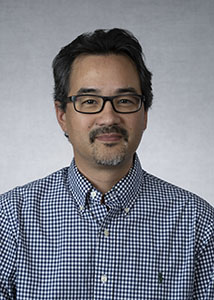
Bill Watson | Professor of Learning Design and Technology
Bill Watson believes that outcomes should drive the learning process as opposed to the calendar, and that this process should be optimized for each learner.
Watson, recently promoted to professor of Learning Design and Technology in the College of Education and Director of the Purdue Center for Serious Games and Learning in Virtual Environments, teaches Integration and Management of Technology for Learning (EDCI 56400), Motivation and Instructional Design (EDCI 58800), and Educational Video Game Design (EDCI 55600).
He earned a BA in English, an MS in Information Science and a PhD in Education with a focus on Instructional Systems Technology, all from Indiana University.
The core of his research lies in personalizing education to meet the needs of learners as individuals through such technologies as video games and learning management software. One project is an online merit-based platform where learners earn digital badges based on completed projects. This platform is called “Passport” and has been discussed in the Chronicle of Higher Education, New York Times, Campus Technology, and U.S. News and World Report. He was also named one of the Top 30 Technologists, Transformers, & Trailblazers by the Center for Digital Education in 2015.
Watson’s favorite memory of Purdue University was having the opportunity to speak at a Purdue Ted-X and sharing his passion for how he hopes to transform Education. Watch “Square pegs for round holes – why education reforms fail”
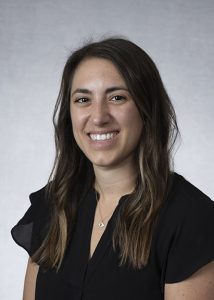
Arianna Banack | Professor of English Education
Arianna Banack is a Visiting Assistant Professor of English Education in the Department of Curriculum and Instruction. Her research focuses on implementing critical literacy with diverse contemporary young adult literacy (YAL) in secondary English classrooms, with a current project focusing specifically on two content analyses of queer Young Adult graphic novels centering on Black, Indigenous, and People of Color characters.
Banack earned a BA in MA in Education and Secondary English from the University of Connecticut followed by a PhD in Literacy Studies from the University of Tennessee, Knoxville. Her recent publications include Voices from the Middle, discussing the power of verse novels in middle grade classrooms to assist students with discussing identity, as well as a publication for the Journal of Curriculum Studies titled “Overwhelming whiteness: A critical analysis of race in a scripted reading program.” She enjoys yoga, peloton, reading YA literature for fun, and going to the beach.
Featured Graduate Students
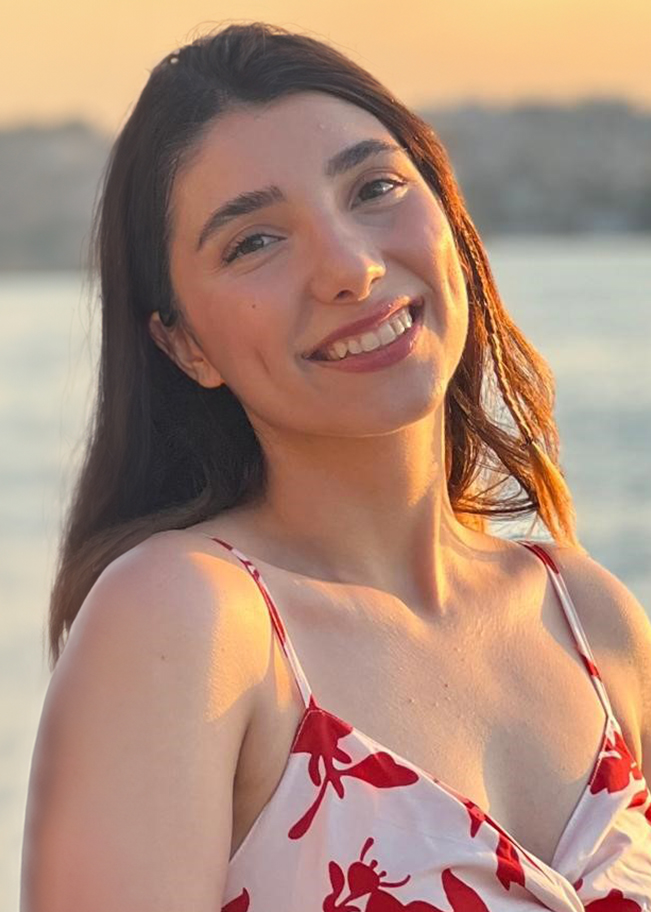
Negar Bakhshandeh | PhD Student | Language and Literacy
Negar Bakhshandeh is in the second year of her Language and Literacy doctoral program in the Department of Curriculum and Instruction.
“I am from Iran, and I have taught English to English Language Learners from a variety of native languages and cultures for almost 11 years,” says Negar. “I also did my master’s and bachelor’s back in Iran in English Teaching and have been busy doing research studies on language learning, teaching, and teacher education.”
Negar chose Purdue University for her doctoral studies because it is nationally and internationally ranked amongst the top 50 institutions in her major. She appreciates that Purdue allows students to explore different departments and programs, fostering an individualized EDCI faculty’s expertise, particularly in areas like Language and Literacy Studies and Educational Equity. Her research interests include teachers’ education, belief, and cognition; language testing and assessment; global (language) assessment policies; educational reform; and language and culture. She plans to complete her doctoral degree in the next five years and establish herself as a language-assessment specialist.
Negar advises fellow graduate student researchers to remain curious, ambitious, and passionate about their area of study. She says: “Seek out opportunities to collaborate with experts in your field and explore diverse research topics. Don’t limit yourself to theory; combine theory and practice to make a meaningful impact in your chosen field. Be open to interdisciplinary perspectives.”
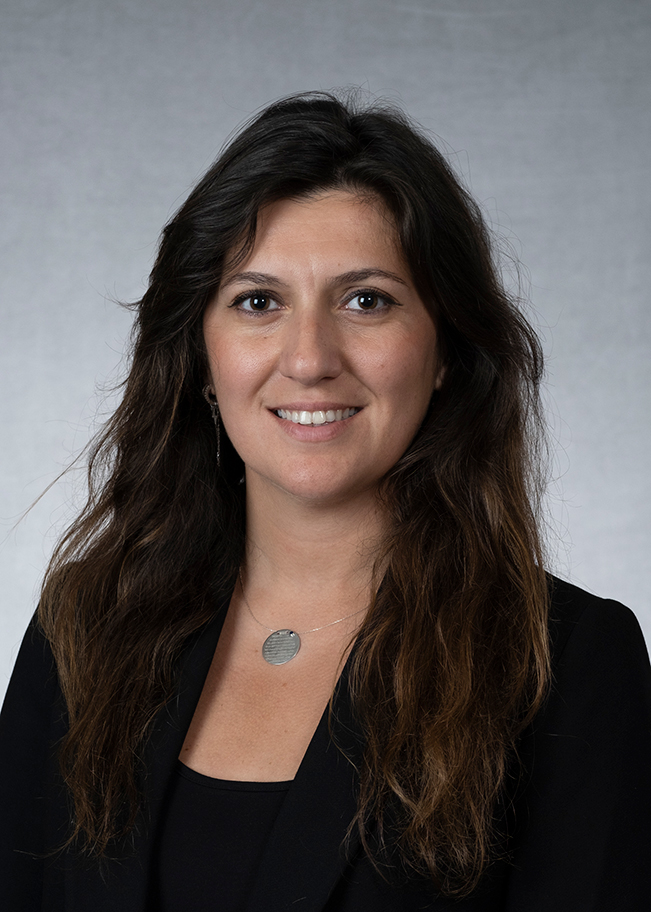
Zeynep Akdemir | PhD Student / Research Assistant | Curriculum & Instruction
“I think it is exciting to look at middle schooler’s science learning profiles from different motivation and engagement frameworks” – Zeynep Akdemir
Zeynep Akdemir is a PhD student studying Science Education in the Department of Curriculum and Instruction. Born in Turkey, she worked as a research assistant at a private university in Istanbul before coming to Purdue.
“My research interests are investigating what motivates middle school students in learning STEM and science in particular,” Akdemir said. “Along this line, I am specifically researching how students’ achievement and motivation is linked to their engagement profiles.”
Recently, her paper “Introducing Quantum Key Distribution to High School Students” was published in Science Teacher. Akdemir describes that the highlight of her research experience so far has been working with a very productive and friendly research team, one notable member being Associate Professor Mushin Menekse within Purdue’s School of Engineering Education. During their time together Akdemir has learned several different methodological approaches to research.
“In five years, I would like to be a successful science teacher educator in the field,” Akdemir said. “Also, I would like to conduct comparative studies here and abroad to explore science learning motivation profiles of middle school students.”
When asked if she had any advice for fellow graduate student researchers, Akdemir recommended that researchers match their life goals to their tasks they perform in their graduate studies as well.
“Choosing the best mentor and finding themselves a compatible researcher in their lab team would give them the courage to do and achieve more,” said Akdemir.
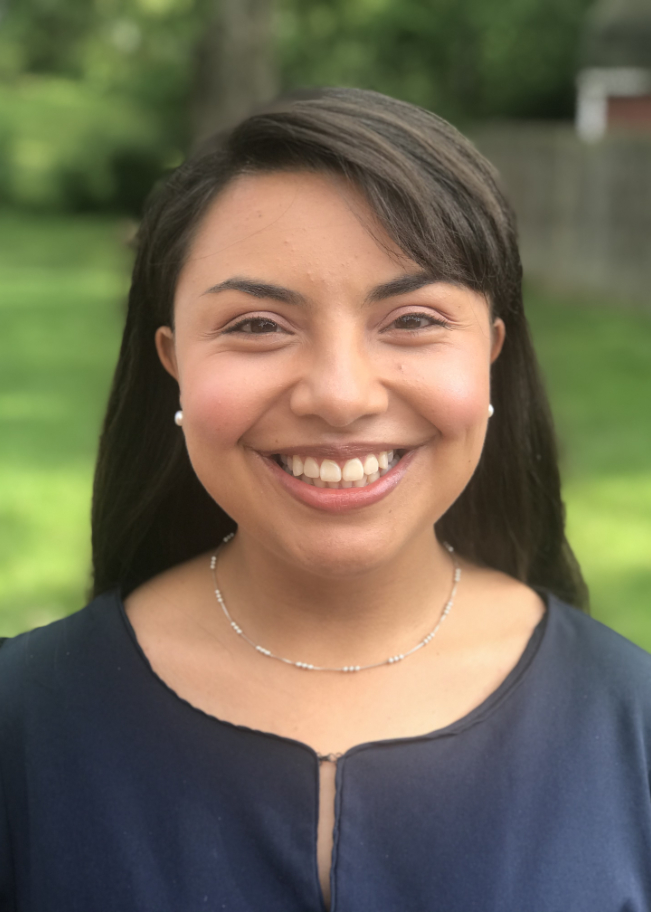
Daniela (Ela) Castellanos-Reyes | PhD student, Learning Design & Technology
“I believe that distance education is one approach to improve people’s lives. My goal is to support adult learners and nontraditional students to improve their quality of life through distance learning.” – Daniela Castellanos-Reyes
Daniela (Ela) Castellanos-Reyes is a fourth-year PhD student studying Learning Design and Technology in the Department of Curriculum and Instruction. Originally from Bogotá, Colombia, she earned her bachelor’s degree in English Teaching from the Universidad Nacional de Colombia and also taught academic English writing to undergraduates.
Castellanos-Reyes came to Purdue after doing a research internship at the Gifted Education Resource and Research Institute (GER2I) as part of the Undergraduate Research Experience Purdue-Colombia, advised by Dr. Nielsen Pereira and Dr. Marcia Gentry. During the internship she also learned about Learning Design & Technology and found that it was a great fit for her.
“My focus is within the fields of instructional design and learning analytics to understand learners’ networks and their interaction with online learning environments,” Castellanos-Reyes said. “I am also an advocate of Open Pedagogies. My work spans from the use of Open Educational Resources (OERs) to Social Networking Sites (SNSs), to Massive Open Online Courses (MOOCs), yet all converge on finding alternative and inexpensive technology platforms for education in a connected world.”
During her graduate training, Ela has enjoyed a prolific writing career counting with 10 publications and six of them as first author. Recently, her paper “The dynamics of a MOOC’s learner-learner interaction over time: A longitudinal network analysis” was published in Computers in Human Behavior. She said that highlights of her time at Purdue so far include the relationship she has with advisor Dr. Jennifer Richardson and working with Dr. Yukiko Maeda. Ela’s proudest achievements are being the first Purdue student to receive the P.E.O. International Peace Scholarship as well as the first Purdue Dissertation Fellow awarded by the National Academy of Education and the Spencer Foundation. She hopes to continue making Giant Leaps as a future faculty!
Learn more about Ela’s work in her website www.elacastellanosreyes.com and connect via Twitter @ElaTheCandidate.
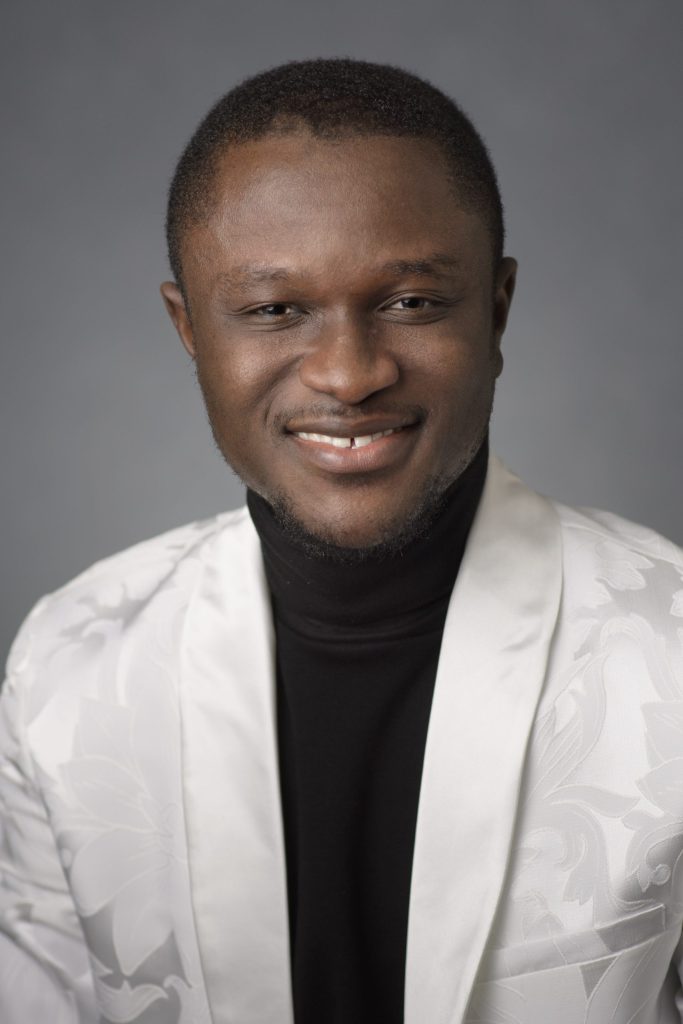
Razak Dwomoh | PhD Candidate
“My research interest is in preparing young people to be critical thinkers, problem-solvers, and civic-ready. I investigate how inquiry-based instructional approaches and culturally sustaining pedagogies impact students’ learning outcomes and social-emotional learning and becoming informed civic competent citizens, positively addressing barriers to student achievement and democratic citizenship.” – Razak Dwomoh
Razak Dwomoh is a fourth-year PhD Candidate studying Social Studies Education in the Department of Curriculum and Instruction. He is an American Association of Colleges for Teacher Education (AACTE) Holmes Scholar. Originally from Ghana, Dwomoh has taught elementary, middle, and high school students. Prior to joining the Purdue community, he completed a master’s in Curriculum and Instruction at Eastern Illinois University.
The crux of Dwomoh’s research interests involves inquiry approaches to Social Studies teaching and learning, teacher preparation, diversity, equity, social justice, and culturally sustaining pedagogies. He has authored ten articles and co-authored five papers in peer-reviewed journals, and currently has three manuscripts under review and five papers in progress.
One of Dwomoh’s articles was recently chosen for the January publication in the 2022-2023 edition of the Purdue Graduate School’s InnovatED magazine titled “The decline of civic education in the United States: Examining instructional strategies in-service teachers employ to prepare the next generation.” He also received an award as one of the top ten graduate students chosen by the Purdue University Graduate School and was one of ten winners of the Boilers Work Internship award in the Summer of 2022.
Dwomoh hopes to be a tenured professor researching social studies inquiry, civic readiness, teacher preparation, and diversity and equity in social studies education.
His advice to current students is to set the right priorities and achievable goals, don’t procrastinate, learn from mistakes, and be open to constructive criticism.
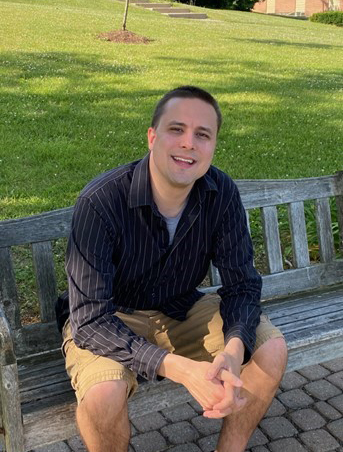
Mark Knight | PhD student, Math Education
“Don’t be afraid to ask faculty for input and advice; they are most helpful whenever any issues come up.” – Mark Knight
PhD student Mark Knight, from Munster, Indiana, completed his undergraduate studies at Purdue in BS Math Education (2012) and his MS Statistical Science (2018) from Indiana University. He is now working on his PhD part-time while teaching at a high school.
“I know that Purdue is a top-tier university with wonderful faculty and many great opportunities,” Knight said. “I chose my area of concentration because I wanted to continue to contribute to the field of math education beyond classroom instruction alone.”
His current areas of research interest focus on the application of technology in the enacted curriculum of statistics and mathematics education. Highlights of his research experience so far include the amount of new ideas, methods, and technologies he has discovered.
“Having been a teacher of statistics and a purveyor of lots of high-quality technological resources in my classroom, it felt like a natural place to direct my research interests,” he said. “I hope to be contributing to mathematics and statistics education both within and beyond the walls of my classroom.”
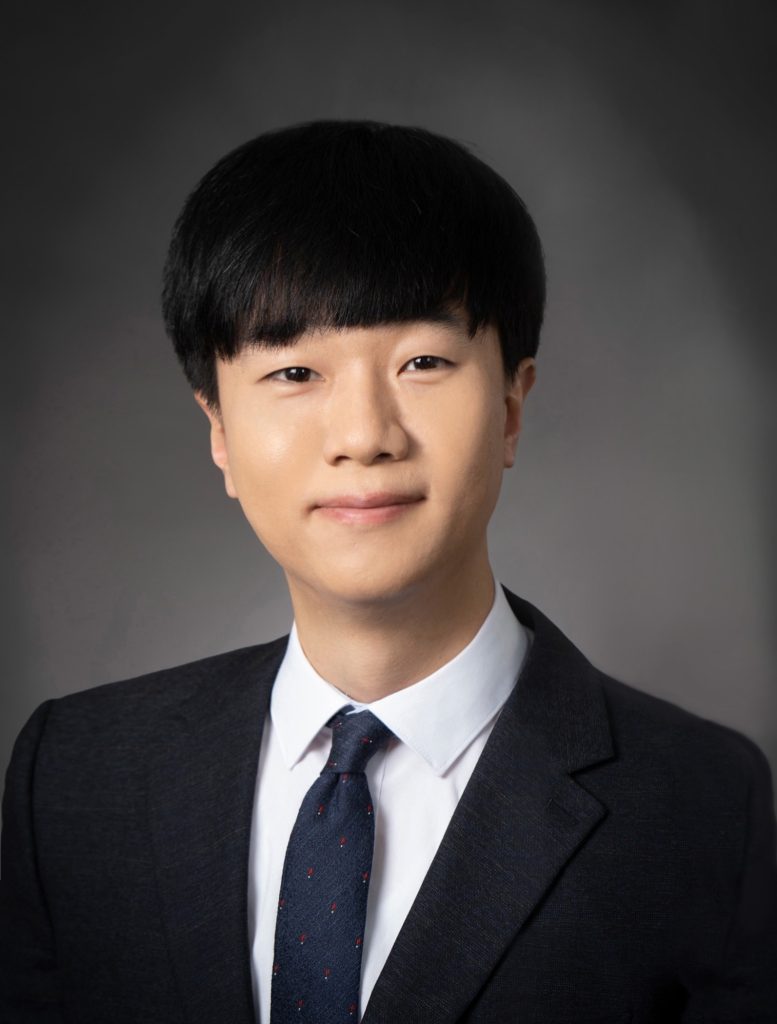
Wonjin Yu | PhD Student in Learning Design and Technology
Wonjin’s message to fellow graduate students is to enjoy the present since graduate school can be a long journey.
Wonjin Yu is a second-year PhD student in the Learning Design and Technology program within the College of Education and a recipient of the David-Ross fellowship within the College. Prior to coming to Purdue University, he earned a Bachelor’s Degree in Elementary Education and a Master of Arts in Elementary Computing Education from Daegu National University of Education in South Korea. He also has experience as an elementary school teacher in South Korea, teaching mostly 5th– and 6th-graders and occasionally students in lower grades. This is where he devoted himself to spreading the effectiveness of computing education to the public. Computing education is his main research interest, with particular projects centered around integrating Artificial Intelligence and Computational Thinking into education methods.
Wonjin is currently working with Samet Baydar on a proposal for a leadership development program for NATO, which they presented on October 26, 2022, at the Association for Educational Communications and Technology Conference in Las Vegas.
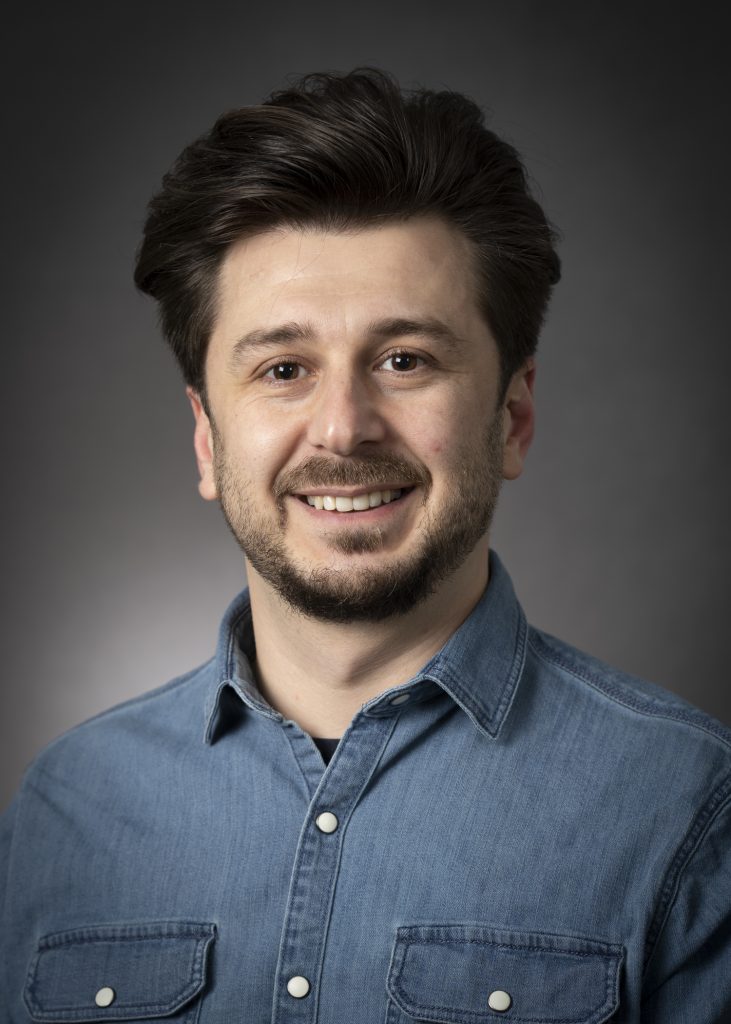
Samet Baydar | PhD Student in Learning Design and Technology
Samet Baydar is a second-year PhD student in the College of Education’s Learning Design and Technology program, and a Teaching Assistant in the College of Liberal Arts’ Japanese program. He is from Turkey and earned a BA in Japanese Language Education at Canakkale Onsekiz Mart University. As an undergraduate, he received a scholarship to study in Japan for one year as an exchange student. Upon completing his BA, he worked in the manufacturing industry in various roles in Turkey.
In 2017, he decided to earn a Master’s degree in Japanese pedagogy in the U.S. and discovered that Purdue’s College of Liberal Arts had the most opportunities for a graduate student. He took three courses from the College of Education during that time and his interest in educational technology took root.
Samet’s primary research interest is personalized learning, which values each student individually and tailors their education based on their needs, preferences, and goals in life. He wants to conduct research on utilizing various technologies (including emerging virtual and augmented realities) to contribute to equity in education.
Samet’s favorite memory in the College is being (along with teammate Wonjin) among the top three winning teams in an instructional design and development competition at the national Association for Educational Communications & Technology (AECT) conference. “It was surprisingly good news for us, and now we will be competing to win the competition in late October 2022 in Las Vegas,” Samet said.
His best advice to future College of Education students is not to fear dreaming of what they want to do in education. “Our faculty provides endless mental and cognitive support to pursue your dreams and research,” Samet concluded.
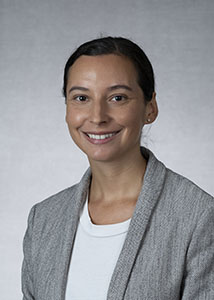
Mathilde Jocteur-Monrozier | MsEd Student
Mathilde Jocteur-Monrozier is a second-year MSEd student from Grenoble, France, studying Literacy & Language Education within the College of Education. She is a graduate of Grenoble-Alpes University in France, where she received a Bachelor and Master of Arts in English. Her research lies primarily in second language acquisition, with a particular interest in immersion programs and international schools. Additionally, she hopes to make an impact on culturally responsive teaching by looking at things from an anti-racist perspective.
Mathilde describes the role of a teacher is not only that of sharing knowledge, but making sure students are becoming kind and responsible citizens. She also believes that modern technology can be utilized to enrich the study of language and help students understand that learning a new language changes the way they see the world.
Mathilde says her favorite experiences in graduate school so far involve helping Purdue students apply to study abroad programs in French-speaking countries and hearing back later about the great experiences they had.
She recently received the Boiler Changemaker Award from the College for leading “the Graduate School Education Counsel (GSEC) into the post-Covid world”, organizing and conducting hybrid workshops for COE graduate students, and helping develop a new program for mentoring incoming international students.
Mathilde’s message to fellow graduate students is to understand that graduate school is a short time, and to make the most of what they have available. She advises them to get out of their comfort zones to meet new people, start new hobbies and apply to opportunities even if they seem out of reach.
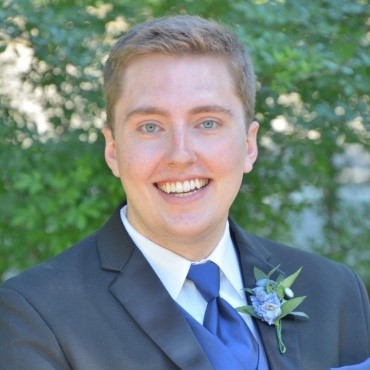
Graham Lyon | PhD Student
Graham Lyon’s message to fellow graduate students is find their calling where their talents cross with the needs of the world and to serve others to the best of their ability with the vessel they were given. Lyon is a third-year PhD student studying Science Education in the Department of Curriculum and Instruction.
Lyon is a third-year PhD student studying Science Education in the Department of Curriculum and Instruction. He is a graduate of Buffalo University where he completed a triple major in Physics, Chemistry, and Mathematics along with a minor in Education where he completed award-winning research on High-Temperature Superconductivity within the Physics Department. After receiving his degree, he earned a National Teaching Fellowship to pursue his current PhD studies. Graham’s main research interests lie in Authentic Education, which presents a crossover of education models such as situated- and problem-based into one uniform and practical message. Lyon has presented his research at the Indiana STEM Conference hosted by Purdue and hopes within five years to obtain a permanent position at Purdue’s College of Science, Engineering, or Education. He also hopes during his time in West Lafayette to form a local private school to implement his Authentic HAMSTER model blending Healthcare, Art and Religion into the traditional STEM approach. He chose Purdue University as part of his National Teaching Fellowship because he believes it offers the highest quality education and opportunities compared to the alternatives.